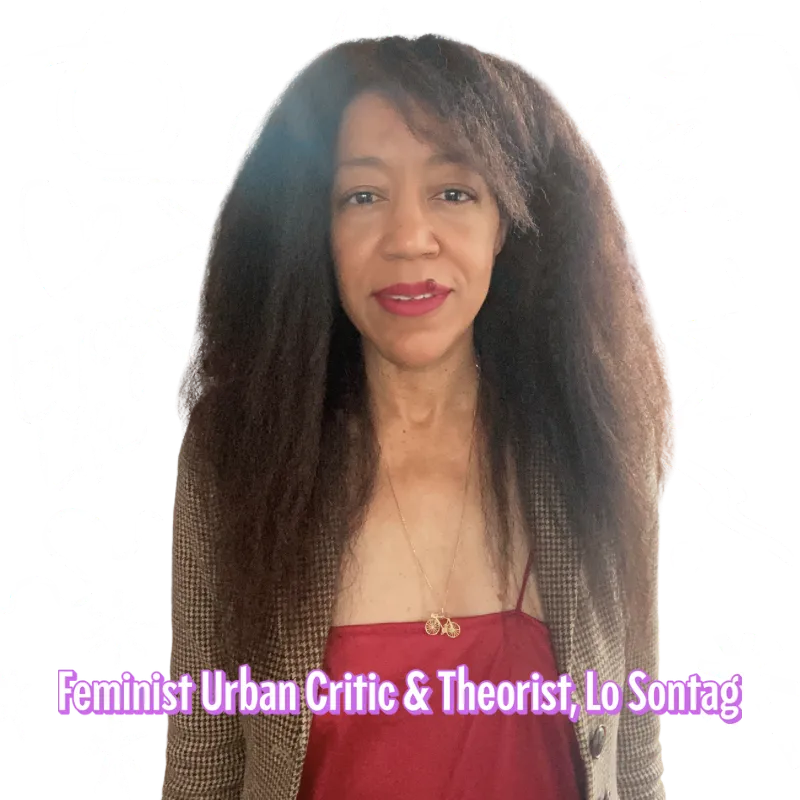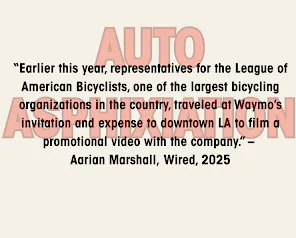I have read Oscar James’s recent opinion piece on Sherrill in NJ dot com—and here is my response—which is not merely a disagreement, but a fundamental challenge to its philosophical and political premises and even the reason it was printed.
James’s oped failure is one of both politics and principle. Its analysis never truly engaged with the Overton window or the systemic forces it claimed to critique. Instead, it was published exactly because it conformed to a paternalistic, and frankly racist, belief in Black intellectual inferiority. To purport this as advocacy for ‘the community’ is a grotesque masquerade that I will not co-sign.
James types from the perspective of a Black capitalist. I do not.
James also presents himself as some kind of leader, what kind of leader types an oped with no demands other than he isn’ t going to vote for Sherrill, because she hurt his feelings. The only reason that piece was published is because it solidifies in the mind of a huge swath of their readers, African Americans' place in New Jersey as a joke. That is not how one negotiates, unless one is really bad at it.
My allegiance is to the entire working class and the environment (the natural world). It is a solidarity that transcends the parochial and ultimately regressive politics of racial capitalism. Black capitalism is a subset of racial capitalism.
For those on the left who would champion his thesis, particularly here in New Jersey, one must call the conclusion by its proper name: an endorsement of a modern segregation, a maneuver whose utility to white hegemony has long been understood. James appears to be, from reading his work and oped— a segregationist.
Some of you seem confused by my assertion. You believe that he “just cares about the community.”
You’ve clearly never been trapped in a paternalistic patriarchal hyper-segregated community like I have. Some believe that ethnonationalism is tangentially related to liberation and demands of equity, it is not. It is very oppressive. James’s paradise is my nightmare.
Have you been seduced by a fashionable but ill-fitting theoretical framework? Do you want to quote Fanon now?
Allow me to clarify, dear accidental handmaidens of hegemony. You’ve misapplied Frantz Fanon’s potent analysis of the colonial condition onto the African American experience. The ghetto is NOT a colony.
Fanon was referring to people who have been colonized, that wouldn’t apply to me. My family has been here over 300 years, this is my final form. There is nowhere for me to go back to.
The facile conception of “the ghetto as a colony” may serve the purposes of your partnership with power—often, though not exclusively, a patriarchal one—but it remains an asinine misprision when removed from its specific revolutionary context.
Economist William Tabb noted in 1979, the Nixon administration actively enforced a policy of black capitalism. This was a deliberate strategy: by extending the promise of capital to a select few Black entrepreneurs, Nixon effectively undercut the broader, more democratic vision of community development corporations, which were conceived to serve the people through cooperative models offering jobs, goods, and services. Nixon’s offer was not liberation; it was, in his own cynical phrasing, merely offering a chosen few “a piece of the action.”
It is this same piece of the action that a figure like Oscar James appears to seek. Segregation, whether de facto or economically enforced, benefits the black capitalist. It creates a captive market and a politically neutered constituency, whose purported leaders derive their relevance and power precisely from their negotiated subordination to white hegemony.
This was Nixon’s genius, and his danger. He perceived an uncontrolled Black Power movement as a threat to domestic security. His response was not to address its grievances, but to co-opt its language and redirect its energy into the safe, state-managed channels of entrepreneurship. The “ghetto as colony” model, with the Black intellectual or business leader acting as a native intermediary to white power—be it conservative, radical, or moderate—is the antithesis of cooperative economics. It is most certainly not liberation. (And, for the record, the colonial analogy is a wildly inaccurate prism through which to view the African American experience. The screams of protest from its adherents are noted, and dismissed.)
This framework of individualism and market-based solutions functions perfectly for one specific type of person: the lone Black scholar within a white institution, debating the merits of de facto segregation under the cloak of empowerment. It works for the foundation-funded non-profit leader, given just enough change to serve as the excuse for breaking the social contract with the African American community, their face used as a shield against charges of racism. It works for the Black business owner who, when their enterprise inevitably fails within a system designed for that outcome—a system that will grant a loan to open a shop in a food desert but not the capital to compete in a thriving market—can blame the “community” for a lack of support rather than the neoclassical economic rigging of the game.
As the visionary Bayard Rustin astutely warned in 1970, “Certain Negro businessmen are the only ones who stand to gain from a black economy protected by the tariff of separatism.” He noted that this arrangement is equally beneficial to the white upper class. Such self-help projects are inexpensive. They demand no large-scale redistribution of resources, no inflationary public expenditure, and, above all, no meaningful responsibility from those who have been the major exploiters of black labor. The reparations demanded under this new dispensation are reduced to mere “seed money”—a nonprofit grant, a minor development loan. These are the paltry offerings of market-based solutions, tokens that were always intended to supplant more substantive, and thus more threatening, forms of restitution.
The “Ghetto as Colony” model does more than just misapply theory; it legitimizes a “separate but equal” economic doctrine. It provides a get-out-of-jail-free card for American racists and, within the Black community, it fosters a destructive individualism and what I would call “Highlanderism”—a perverse dynamic where solidarity between even two Black people becomes impossible under the unwritten rule of “one Black person per organization.” (A restriction notably less rigidly applied to other non-white groups).
Enjoying this oped, then sign up for our podcast!
I understand the allure of Fanon. His work is brilliant and essential. But it is not a bible to be weaponized through literal, unthinking application. His diagnoses are specific to a time, a place, and a material condition. To force them onto every African diaspora experience is not merely an academic error; it is a political dead end.
Oscar James is not playing with fire in this racist hellhole out of a progressive conviction or a genuine concern for what a politician like Sherrill will do for the Black community. This is, quite simply, a performance for a piece of the action. And in New Jersey, you get your piece by tap-dancing to the precise beat of Black Capitalism.
Former councilperson James is asserting his right to withhold support and thus allow the Fascists to take control. So what is Jack offering? To be vulgar, Jack Shit.
Some points to remember about Jack’s record and plans:
- He’ll consolidate all of transportation parkway and public transit into one department, that means he’ll defund public transit so you can have the privilege of driving into New York, “I believe the Turnpike, the Parkway, and transit should all be under one authority, the Garden State Transportation Authority.”
- Record of opposing LGBTQ rights, including votes against marriage equality, votes against gender marker updates on personal identity documents, and inaccurate and inflammatory rhetoric about LGBTQ people.
- Defund schools, flatten funding across districts, and institute vouchers. And how is this going to help the public schools that are educating the African American Community by cutting the support EVEN MORE for most students.
- From POLITICO “The remaining districts — those Ciattarelli appears to be looking at for savings — are former “Abbott” districts like Asbury Park, Jersey City, Camden and East Orange, which spend more than $20,000 per pupil and get a large percentage of their funding from the state due to the landmark Abbott v. Burke state Supreme Court decision.”In short the free childcare programs will be GONE!
- Ban offshore wind farms.
- Require ID at Voting Polls
- And the typical burn it all down philosophy which means your government jobs are gone, your retirement is gone, the community colleges, Rutgers, and Montclair state possibly gone
Instead of demanding a place at the table, Oscar James is walking himself and the community out of the door and into the alley to go hungry.
To rewrite King:
“And when his community's wrinkled stomach cried out for the food that his empty pockets could not provide, (Yes, sir) he ate Black Capitalism, a psychological white hegemony tool that told him that no matter how bad off he was, at least he had his pride.”
Check out Lo Sontag’s critique of NJ Transit Penn Newark Light Rail Station






